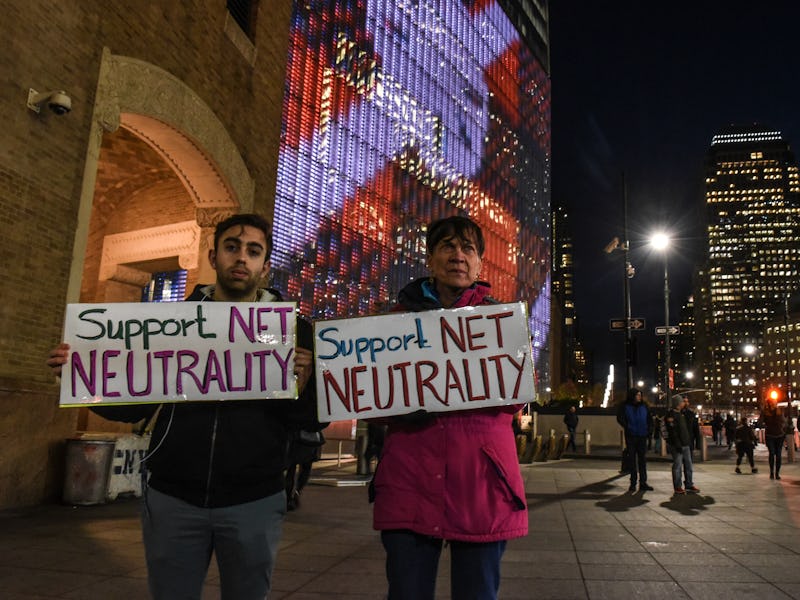How the FCC's Vote on Net Neutrality Will Affect Innovation and Startups
Fear life in the slow lane.

The internet may never be the same after this Thursday. The Federal Communications Commission is set to vote on Chairman Ajit Pai’s plan to end net neutrality, the principle that internet service providers cannot charger for faster speeds or throttle access to content they don’t like.
While a big part of Pai’s justification for the move has been his contention that Obama-era net neutrality rules have stifled investment and innovation, the prevailing sentiment among tech startups has been the exact opposite. The fear of fledgling businesses having to pay potentially exorbitant premiums just so people can reach their sites has led many startups to come out in sharp opposition to the proposal.
“We’re fairly confident this will have an impact on us,” Steven Rybeck, the founder of the startup Clickplayrésumé, told Madison, Wisconsin’s The Capital Times. “And we’re confident that impact is going to be profoundly negative.”
For companies still looking to make their mark, the biggest fear is that of “fast” and “slow” lanes. Say you’ve designed a cool new video-sharing service you think has a real chance to compete with YouTube. Yeah, that’s a risky proposition at the best of times, but nothing ventured, nothing gained, right?
Under the current net neutrality rules, internet users will have equal ability to access your service and YouTube. Sure, it’s still up to you to get the word out about the service and to find some way to demonstrate why it’s clearly better than the Google-owned behemoth. That’s a tall order, and YouTube will have lots of built-in advantages.
The one thing Google can’t do is pay ISPs extra so that users can load their site instantly while yours takes agonizing, user-destroying seconds, even minutes. The slow lane would be a very, very bad place to be for any companies that are already facing a steep climb to prove they offer something the established giants don’t.
Maybe that isn’t convincing, though: YouTube became the most popular for a reason, the argument goes, and one extra advantage isn’t going to make or break upstarts that would already struggle to compete with it. That’s an argument, at least. But there’s a more fundamental reason to fear what the end of net neutrality would mean for innovation and the startups that generally represent the vanguard of trying bold new things.
Writing in a Medium post, app designer Lukasz Lysakowski identifies the more fundamental reason to fear the end of net neutrality when it comes to reliable access to fast internet speeds.
“We are still in the infancy of the web,” he writes. “We are just starting to see AR, VR, and mixed reality take off. This field plus many other new technology fields will need access to even fast(er) networks and more data delivery. Incumbent technology companies plus startups will be racing with each other to develop the new ideas. Startups to challenge and progress the status quo will need the critical access to an equal and fair playing field.”
All this goes back to the principle of competition. Net neutrality can’t guarantee a level playing field all by itself — established tech companies already enjoy so many boons that the creation of a tiered internet probably won’t represent the apocalypse for startups all by itself.
But for there to be any real chance for startups to take on the Googles and the Facebooks, those new companies at least want to avoid spending money they frequently don’t have to guarantee the public can actually see what they are trying to crate.